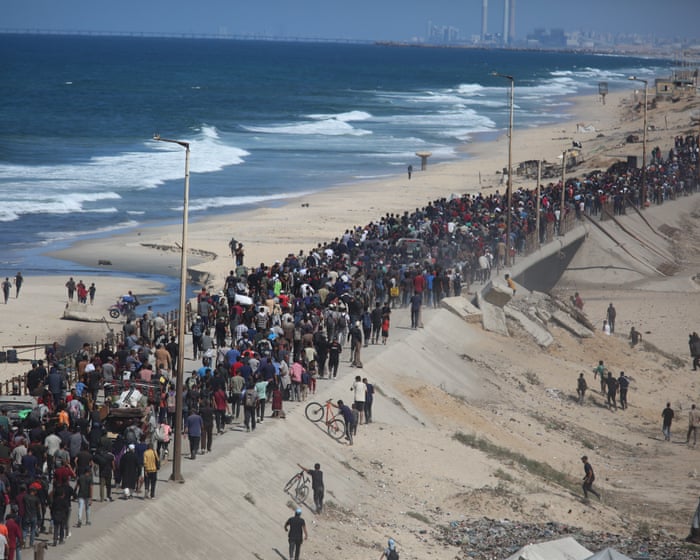Israel has warned it will increase attacks on Hezbollah in southern Lebanon, following reports from Lebanon’s health ministry that four people died in an Israeli airstrike.
Despite a ceasefire agreed in November 2024, Israel continues to station troops in five areas of southern Lebanon and carry out regular strikes.
Israeli Defense Minister Israel Katz criticized the Lebanese government for stalling on efforts to disarm Hezbollah, stating, “Hezbollah is playing with fire, and the president of Lebanon is dragging his feet.” He emphasized that Lebanon must follow through on its commitment to remove Hezbollah from the south and vowed to intensify enforcement to protect northern residents.
The threats came as the Israeli military confirmed an overnight airstrike in southern Lebanon that killed four members of Hezbollah’s elite Radwan Force. The IDF said the strike in Kfar Reman targeted the unit’s logistics chief, who was involved in weapons transfers and attempts to rebuild militant networks in the region. The three others killed were also Radwan members accused of violating the ceasefire.
Lebanese media named the four as Jawad Jaber, Hadi Hamid, Abdullah Kahil, and Muhammad Kahil.
Hezbollah, backed by Iran, suffered significant losses during over a year of conflict with Israel but remains armed and financially stable. In September 2024, Israel killed the group’s longtime leader, Hassan Nasrallah, along with other senior figures.
Under the U.S.-brokered November truce, Lebanon agreed that only state security forces could carry weapons, effectively requiring Hezbollah’s disarmament. Since then, Beirut has faced increasing pressure from the U.S., Saudi Arabia, and domestic rivals to enforce this. According to Lebanese army sources, security forces have destroyed so many Hezbollah arms caches that they’ve run out of explosives, yet they must carefully balance upholding the agreement without escalating tensions at home.
Once a dominant political and military force in Lebanon, Hezbollah was severely weakened by last year’s war, which killed thousands of its fighters and Nasrallah. The conflict also resulted in over 1,100 deaths among women and children and caused widespread destruction in southern and eastern Lebanon.
Hezbollah has publicly adhered to the ceasefire, avoiding attacks on Israel and not resisting the seizure of unmanned weapons in the south. However, the group maintains that disarmament only applies to southern Lebanon and has suggested it could resume hostilities if Israel takes broader action against it.
On Thursday, Israeli ground troops conducted another deadly raid into southern Lebanon, leading Lebanese President Joseph Aoun to order the army to confront such incursions. Aoun had proposed talks with Israel in mid-October after the U.S. helped broker a Gaza ceasefire but later accused Israel of responding with increased airstrikes.
This report includes information from Agence France-Presse and Reuters.
Frequently Asked Questions
Of course Here is a list of FAQs about Israels warnings of escalating strikes on Hezbollah in Lebanon designed to be clear concise and in a natural tone
Basic Understanding Context
1 What is happening between Israel and Hezbollah right now
Tensions are extremely high Israel has been carrying out airstrikes in Lebanon and Hezbollah has been firing rockets into Israel Israel has recently warned that these strikes will become more intense and widespread
2 Who is Hezbollah
Hezbollah is a powerful political party and militant group based in Lebanon It is backed by Iran and is considered a terrorist organization by many countries including the United States It has a large arsenal of rockets and a welltrained military wing
3 Why are they fighting
The immediate trigger was the Hamasled attack on Israel on October 7 2023 and the subsequent war in Gaza Hezbollah began firing rockets to show solidarity with Hamas and to open a second front to pressure Israel However the conflict has deeper roots in decades of hostility between Israel and Hezbollah
4 Has this happened before
Yes Israel and Hezbollah fought a major monthlong war in 2006 Since then there have been periodic border clashes but the current escalation is the most severe since that war
Escalation Military Action
5 What does escalating strikes mean
It means Israel is planning to increase the intensity and scope of its attacks This could involve more frequent strikes targeting more senior Hezbollah leaders hitting targets deeper inside Lebanon or using more powerful weapons
6 What is Israels main goal with these strikes
Israels stated goal is to push Hezbollah away from its northern border to allow tens of thousands of displaced Israelis to return home safely They want to create a security zone where Hezbollah cannot operate directly on the border
7 What is Hezbollahs goal
Hezbollah says its attacks are in support of Hamas and the Palestinians in Gaza Its broader goal is to maintain its position as a powerful resistance force against Israel
8 Could this turn into a fullscale war
Yes that is a significant risk Both sides have powerful militaries and a miscalculation or a particularly devastating attack could quickly spiral into a



